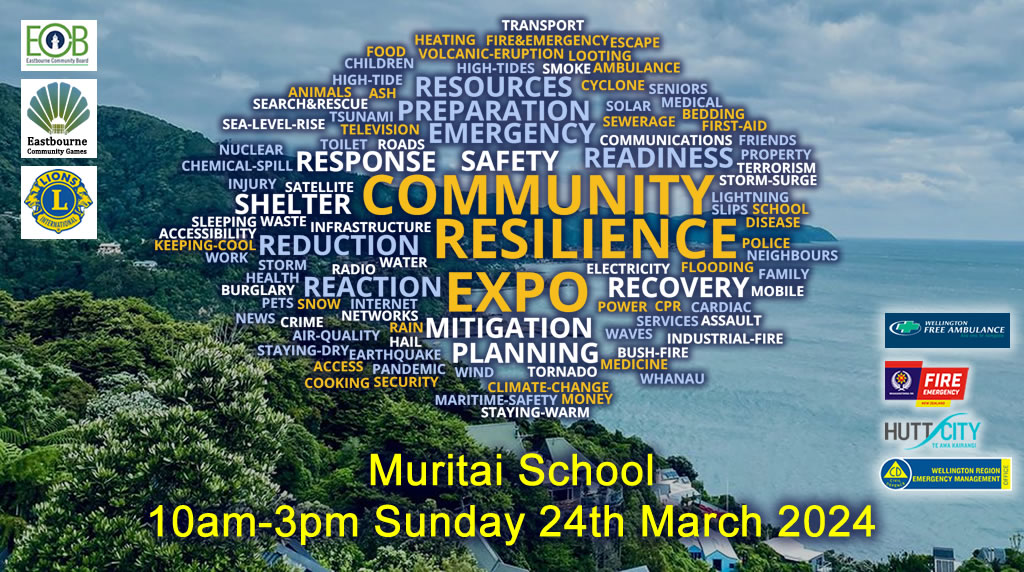Resilience can be considered in four phases.
Reduction (mitigation, prevention) – these are plans and actions we can take or begin now to reduce the likelihood or impact of future events.
Readiness (preparation, planning) – identifying possible emergencies and having plans and resources in place to deal with these if or when they arise. Awareness of how long the emergency might last, and how long we may be relying on our own resources before help arrives.
Response (actions) – acting when an emergency event occurs, making sure all your whanau and community are safe and activating plans, prioritising.
Recovery – probably the longest phase. Once the immediate emergency is over the possibly long journey to return to normal life (with maybe a new “normal”) begins.
More information on how we can be more resilient will be added here soon, in the mean time Find out about the Eastern Bays Resilience Expo
